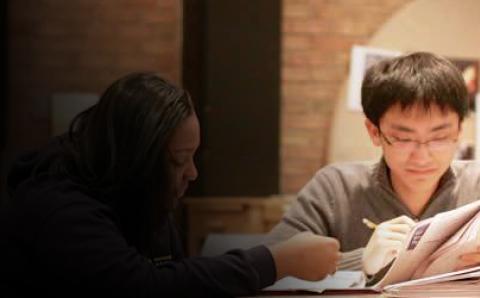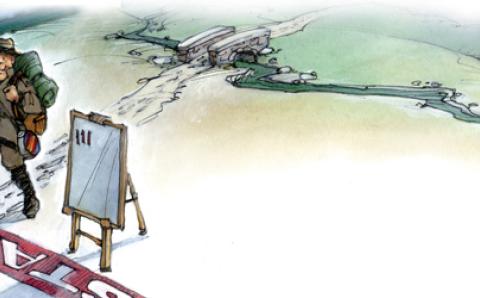Unhealthy Dichotomy
Joel Phillips’s article (“An Unhealthy Dichotomy” December 2012) [suggests] that there is a struggle between faith and science. This is false. The struggle is between two different faiths and between two different ways of doing science. God created science, and he gave us faith in Christ [and] in his Word, so it is impossible for there to be a struggle between faith and science. I agree with Phillips that looking at scientific evidence without God does not make sense. But the raw evolutionary theory tries to make God and Scripture irrelevant. It is not necessary for medical students to assume evolution in order to be good medical students. Genetics does not require evolution in order to be good science.
—John Zylstra
Fairview, Alberta
The Ring
I experienced an unexpected emotional moment when I saw B.J. Huizenga’s “The Ring” (November 2012). I’m B.J.’s eldest daughter and I remember this ring my dad wore so faithfully; it’s a part of our family history. My memory of Dad's reaction to this reassurance of God's hand has invigorated my own assurance of God working in my life.
—Jacalyn Wood
Grand Rapids, Mich.
“The Ring” by B.J. Huizenga brought back many memories of Rev. Bartel N. Huizenga when he served Akron Christian Reformed Church. Sandra played the piano for our worship services and had a close-up view of the ring when seated at the piano next to the pulpit. We fondly recall Rev. Bart’s stories about his time in New Mexico, his explanation of what a mesa looked like, and his recollections of his good friend Scott Redhouse. Just yesterday I re-read my Bible notes on Rev. Huizenga's 1989 sermon on the three parts of the Heidelberg Catechism, one of many meaningful sermons. Thanks for a beautiful article.
—Fred and Sandra Wybenga
Tallmadge, Ohio
Arm in Arm
Thank you to The Banner and to Rev. Harry Kuperus for sharing his vision of an inclusive church (“Arm in Arm,” November 2012). I hope Kuperus and I live long enough to see it.
—Marlene Bergsma
Wellandport, Ontario
We personally knew the pastor and his wife referred to in Rev. Kuperus’s article “Arm in Arm.” He married us and baptized our twin sons. In the years following, we would learn that one of our sons is gay. Since then, I have been on a personal mission to explore and discover who my son really is. Who would make such a choice and be exposed to verbal abuse, threats, condemnation, and possible alienation from family, friends, and church?
As Christ loves all of us with an unconditional love and “just as we are,” we love each of our children unconditionally “just as they are.” Sexuality is not a choice but is as much of who we are as the color of our skin.
The Bible teaches that we have all sinned and fall short of the glory of God (Rom. 3:23); we are called to love and not to judge (Matt. 7:1-2).
Recognizing the eternal importance of seeking and loving God above all else, the church should respect and include all people regardless of race, gender, or sexual orientation. A person’s church should be one of his or her most welcoming and affirming places. It is our prayer that in our lifetime we can witness unconditional love, acceptance, and affirmation of all people.
—Abe and Tena Horneman
Leduc, Alberta
Growing Business, Healthy Planet?
I was surprised by some of the comments in the article “Can a Growing Business Sustain a Healthy Planet?” (November 2012) such as the one that students “strongly suggest” that business motives operating in conflict with environmental stewardship principles “cannot be the case” as our society “no longer tolerates such activity” ; “in today’s economy businesses would quickly lose sales if they overtly spoiled our misused the environment.” Further, “businesspeople they know realize the importance of sustainability and want to live in a world where people honor their stewardship responsibilities.”
These seem rather naive statements to me given that, for example, for years many manufacturers have continued to mine and burn coal in ways that are harmful to our land and our environment. The recently adopted synodical report on climate change provides many similar examples.
I am sure that many businesspeople believe as stated above; I wish it were not so altruistic to believe that most do.
—Gary Mulder
Springfield, Va.
God’s Economy
When Mr. Kollenhoven (“God’s Economy or Ours?” November 2012) decries those iPhones and big houses and other items I wonder, “Who gets employed to make those items? Does wealth just grow on trees?” I am reminded of the deacon in my church who works as a carpenter on one of those “big” homes. He commented how very grateful he is for wealthy people keeping him employed! The reality is that rich people buy things to keep us less fortunate working. Those iPhones keep people working so they can feed themselves versus having some “do-gooder” giving them a handout.
—Pastor Doug Quenzer
Ellison Bay, Wisc.
Why is it an either/or proposition (“God’s Economy or Ours?” November 2012)? God didn’t give those commands to the Israelites to starve people but so that the soil could be replenished and be able to bear fruit in the long term. Lots of organic farmers have reverted to and are applying those principles nowadays—sometimes without even knowing they’re in the Bible—because industrial farming is not environmentally friendly.
If we have to choose between God’s economy and ours, I’d say God’s anytime. We claim he is all-wise and omniscient in church on Sunday and implement practices that say the opposite on Monday, and then we want to preach to unbelievers about him? We’d better clean up our act first.
—Michèle Gyselinck
Montreal, Quebec
As a pastor with an economics degree I read “God's Economy or Ours?” (November 2012). Certainly the premise that what we possess is only under our control for a limited time is true. However, it’s still to be under the lordship of Christ. It is curious that people want to make parallels with Old Testament “economics” within the covenant community of Israel and then try to make those same principles carry over into worldwide economics. However they often cherry-pick their ideas to suit their agendas:
- It was against the law to charge interest to a fellow Israelite, but it was not against the law to do so to a foreigner (Deut. 23:19-20). So how would that work in a global economy?
- In the year of Jubilee the land was supposed to return to the original owners and each was to return to the original clan. But it also says Israel isn’t supposed to reap anything that grows of itself that year (Lev. 25:10-11). Does this mean the government should not have an “inheritance tax” that often keeps people from passing on their wealth to their family? And that the apples on your backyard tree should just drop to the ground that year?
- Everyone, poor or rich, was required to pay the tithe; all paid the same amount! (Lev. 27:30-34). Does this mean that a “progressive” tax system where some pay no tax while others pay more is unbiblical? Should we be advocates of the flat tax?
- Farmers were not allowed to glean their fields but leave some for the poor to gather (Lev. 19:9-10). Does this mean that the poor should do something to provide for themselves rather than just receive a handout (cf. Ruth 2)? After all, it takes work to glean a field.
When Mr. Kollenhoven decries those iPhones and big houses and other items I wonder, “Who gets employed to make those items? Does wealth just grow on trees?” I am reminded of the deacon in my church who works as a carpenter on one of those “big” homes. He commented how very grateful he is for wealthy people keeping him employed! The reality is that rich people buy things to keep us less fortunate working. Those iPhones keep people working so they can feed themselves versus having some “do-gooder” giving them a handout.
—Pastor Doug Quenzer
Ellison Bay, Wisc.







